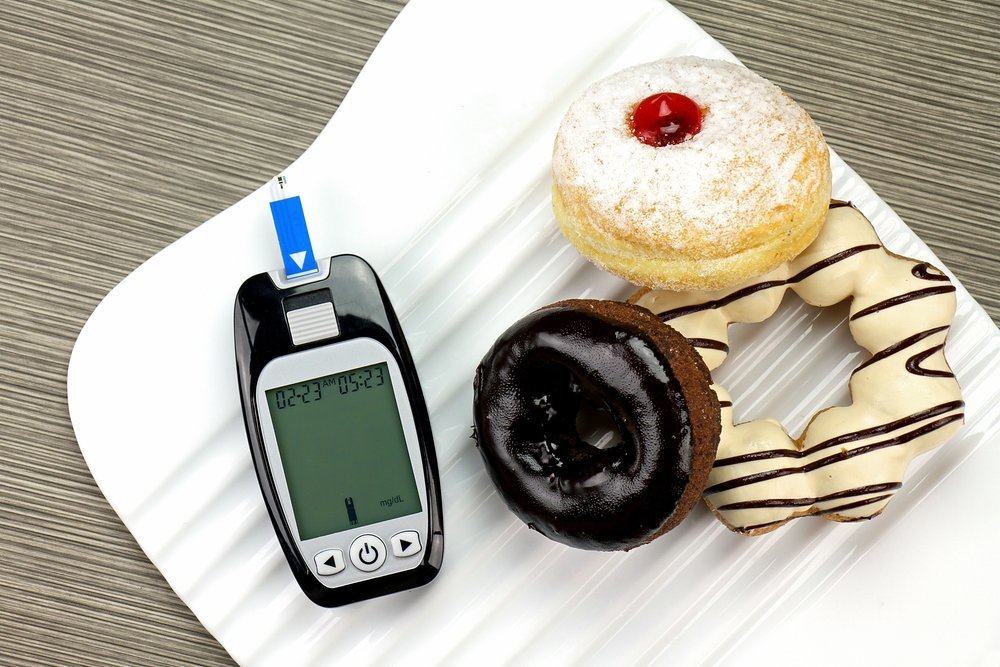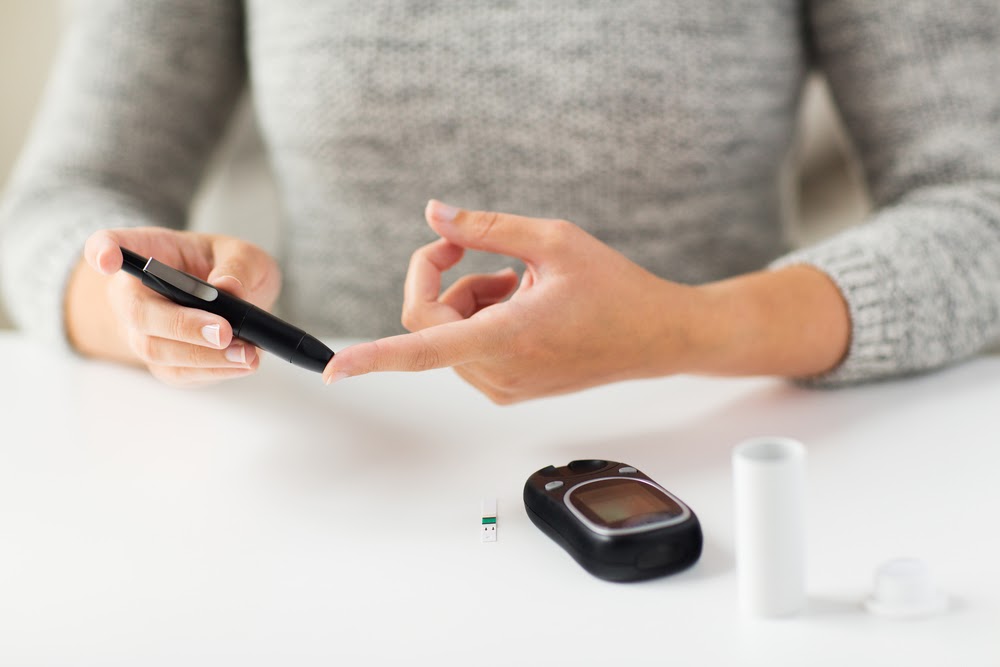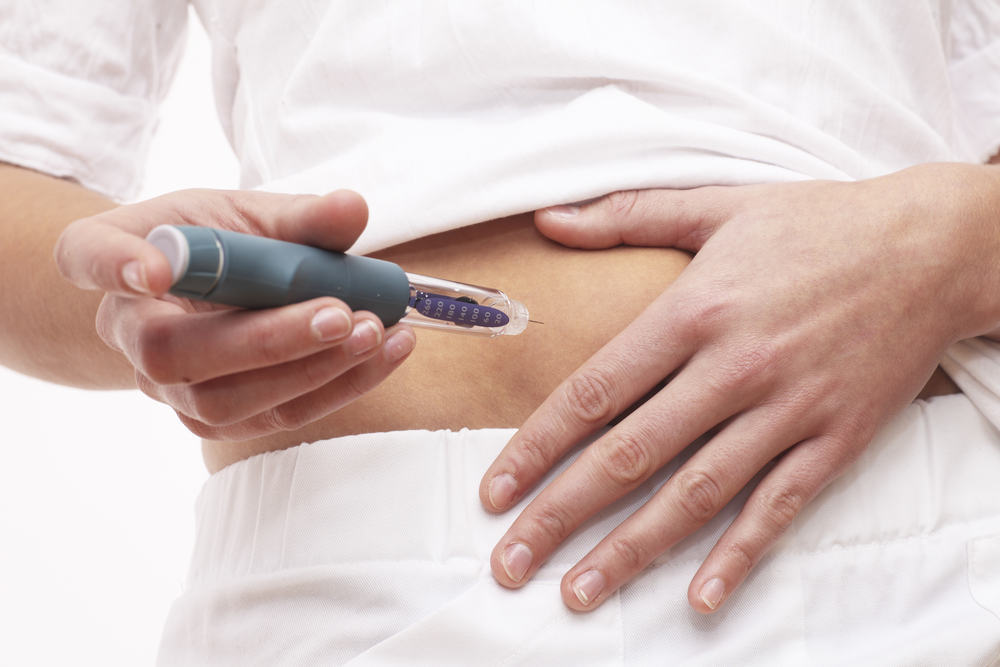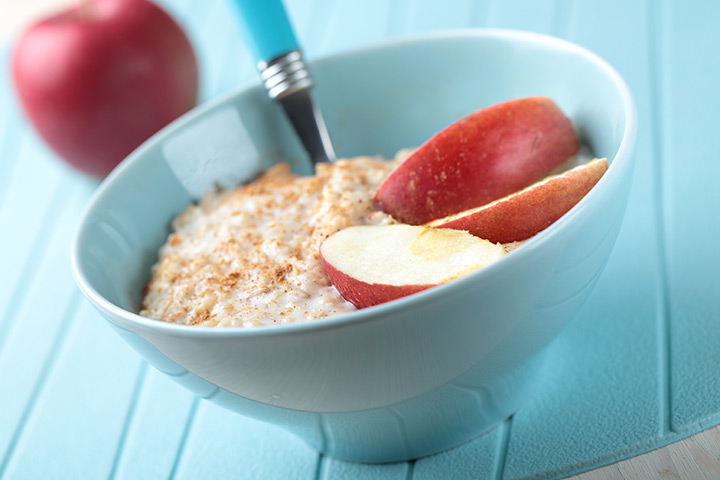Contents:
- Medical Video: What is a normal blood sugar level?
- Facts about normal sugar levels and diabetes
- What is the normal blood sugar level in the body?
- Fasting blood sugar (GDP)
- Blood sugar 2 hours postprandial (GD2PP)
- When blood sugar (GDS)
- Hemoglobin A1c (HbA1c)
- Can I check my own blood sugar at home?
- If I have diabetes, how often do I have to check blood sugar?
- The cause of blood sugar rises
- How to prevent normal blood sugar levels from rising?
- 1. Exercise and keep the body moving
- 2. Maintain the pattern and food intake of diabetic patients
- 3. Don't skip breakfast
- 4. Maintain mood and manage stress
Medical Video: What is a normal blood sugar level?
Indonesia is the country with the fourth largest number of diabetic patients in the world, after India, China and the United States. This number will certainly continue to grow from year to year, if many people do not change their lifestyle. In fact, according to Dr. R. Bowo Pramono, Sp. Pd. KEMD (K), more than 60 percent of Indonesia's population is unaware that they have diabetes, as quoted from the page dikti.go.id. Therefore, it is important for us to know the limits of normal blood sugar in the body. What is the normal sugar level in the body?
Facts about normal sugar levels and diabetes
In people who do not have diabetes, insulin function is still normal so they can control and get normal blood sugar levels in their body. Unlike people who have diabetes, who have suffered damage to insulin function.
Insulin is a hormone that converts glucose so that it can be used by body cells as energy. Insulin is produced by the pancreas and released into the body when the amount of glucose in the blood increases. In people with diabetes, because the insulin function is damaged, the body cannot use glucose properly and loses control of blood sugar levels in the body.
Therefore, people with diabetes must always control their lifestyle so they can help their body control blood sugar levels. They are advised to always eat the right foods, exercise regularly, take medication regularly, and reduce stress.
What is the normal blood sugar level in the body?
Blood sugar checks are important to know the health condition of your body. If you are not diabetic, check your blood sugar when or occasionally it is useful to prevent diabetes.
If you have diabetes, a check of blood sugar is useful so you can always control your normal blood sugar level how it should be. Routine blood sugar checks can help your treatment and your illness does not worsen.
Blood sugar levels can be checked through several tests, including:
Fasting blood sugar (GDP)
Checking this fasting blood sugar level is usually done after you have fasted for at least 8 hours. However, you are still allowed to consume water. Usually tests for normal or not, and check whether you experience it prediabetes and diabetes.
The following are the normal sugar level criteria from the results indicated by the GDP test:
- Normal (no diabetes): below 108 mg / dl
- Prediabetes: 108-125 mg / dl
- Diabetes: above 125 mg / dl
Blood sugar 2 hours postprandial (GD2PP)
This test is done 2 hours after your last meal. Usually this test is done to see if people with diabetes eat the right foods, so they don't have a bad impact on insulin in the body. Insulin levels that are too high in the body in people with diabetes can cause inflammation of the blood vessels and nerves.
The following are the criteria for normal sugar levels from the results indicated by the GD2PP test:
- Normal (not suffering from diabetes): below 140 mg / dl
- Prediabetes: 140-199 mg / dl
- Diabetes: 200 mg / dl or more
When blood sugar (GDS)
This test can be done anytime, can be done randomly throughout the day. This randomized test is useful because glucose levels in healthy people show numbers that are not much different throughout the day. If the results of GDS in healthy people show results that vary greatly over time (can be more than 200 mg / day), it can be interpreted that the person is having problems with his blood sugar.
The following are the criteria for normal sugar levels from the results indicated by the GDS test:
- Normal (not suffering from diabetes): below 200 mg / dl
- Diabetes: above 200 mg / dl
However, the actual normal sugar level or not in the blood can change over time, such as before eating and after eating. The following is the normal range of your blood sugar levels at all times.
- After not eating for 8 hours (fasting): less than 100 mg / dl
- Before eating: 70-130 mg / dl
- After meals (1-2 hours): less than 180 mg / dl
- Before going to bed: 100-140 mg / dl
Hemoglobin A1c (HbA1c)
This test is done to measure how much glucose (sugar) is attached to red blood cells. This test is used to diagnose diabetes and can also show how well people with diabetes can control their diabetes over the past 2-3 months. The A1c test results can be used to estimate average blood sugar levels.
The criteria for the HbA1c test will be shown as follows:
- Normal (no diabetes): below 42 mmol / mol (6%)
- Prediabetes: 42-47 mmol / mol (6-6.4%)
- Diabetes: 48 mmol / mol (6.5%) or more
Can I check my own blood sugar at home?
Yes, you can check the sugar level normally or not by yourself, no need to go to a clinic or hospital. The reason is, there are now many who sell simple blood sugar check tools. You can actually use the tool to monitor blood sugar levels when. Especially if you are taking drugs that suppress blood sugar that make you risk natural hypoglycemia or low blood sugar levels.
If you really want to buy a blood sugar checker so you can do your own tests, you should first consult the doctor who handles you. Make sure that you understand well how to use the tool and how to take the correct blood sample.
If I have diabetes, how often do I have to check blood sugar?
For how often to check blood sugar, each person will be different. This depends on what treatment is given. Usually, if you are given several drugs that can make blood sugar drop dramatically, then you are asked to more often check whether the sugar level is normal or not in the blood.
However, to make sure it's better you immediately ask the doctor who handles you about how often you have to check blood sugar.
The cause of blood sugar rises
Dehydration
Sugar levels when you are dehydrated will definitely rise. Dehydration it can be dangerous for people with diabetes mellitus. In normal and healthy people, dehydration can increase normal blood sugar levels in the body.
This is because the blood flow in the body lacks fluids and thickens more. This relationship can also occur otherwise, when blood sugar increases, the body will release more urine, therefore dehydration occurs.
Familiarize yourself to consume mineral water, not 8 glasses per day but drink mineral water according to your needs so that it is dehydrated properly. The higher the physical activity carried out, the more water needs the body needs
Dawn phenomenon
The condition of blood sugar at dawn or in the morning can increase. This is called the phenomenon of dawn or dawn phenomenon, where the body experiences an increase in a number of hormones which can increase blood sugar drastically.
This event usually occurs at 2 to 8 am, where the body secretes hormones such as growth hormone, cortisol, glucagon, and epineprine, which can increase insulin resistance so that blood sugar levels can rise in the morning.
In people who have diabetes, pre-existing insulin does not work well, then a dawn phenomenon occurs that makes insulin work more inhibited. This is what can cause a very high increase in blood sugar. Because diabetics are advised not to eat dinner too late and do physical activity after dinner.
Lack of sleep
Diabetics are often recommended to get enough sleep. The reason is, blood sugar when people with diabetes lack sleep, will increase and can cause stress. limit sleep for people with type 1 diabetes mellitus only 4 hours a night, and the results are known that their insulin sensitivity decreases 14% to 21%.
A lack of sleep will also increase stress on the body and result in increased blood sugar levels. The experts stated that when sleeping there is a decrease in the hormone cortisol and nervous system activity which can maintain regulation of blood sugar levels in the body.
Extreme temperature
Extreme cold or hot temperatures will indeed make diabetics experience an increase in sugar levels. This is because extreme environmental temperatures can disrupt the system at blood sugar levels.
For example, if a diabetic person feels heat, it will be difficult to sweat like a healthy person who is hot. So sometimes, abnormal body temperature can cause normal blood sugar levels in the body to increase. In addition, extreme temperatures can cause complications in the body of people with diabetes.
Consume too much caffeine
Coffee, tea, and chocolate, are many sources of caffeine that are familiar to everyday consumption by the community. But, you know, even though people with diabetes don't use sugar when drinking tea or coffee, can their blood sugar levels still rise?
Yes, according to research from Duke University in 2008, found that people with type 2 diabetes mellitus who have coffee or tea consumption habits that contain 500 milligrams of caffeine can increase 7.5 percent of blood sugar levels. It's good for diabetics to reduce and avoid consuming caffeine to prevent a surge in blood sugar levels.
How to prevent normal blood sugar levels from rising?
1. Exercise and keep the body moving
The American Diabetes Association recommends that everyone, more diabetic patients, remain active in motion and exercise. Exercise for 30 minutes, like aerobics or just jogging, can reduce blood sugar levels and maintain normal blood sugar levels.
Exercise can also help your body become more sensitive to insulin. When you exercise, the total cholesterol and triglyceride levels in the body will also decrease. This can also increase HDL cholesterol "good cholesterol".
2. Maintain the pattern and food intake of diabetic patients
Pasieen diabetes must know and always choose healthy food, because this has become part of your diabetes care. Initially it might be difficult because you have to change your eating habits. Do it gradually, change the easiest eating habits for you.
If you succeed in doing this, continue until you have a habit of eating nutritious foods. Indeed, it will be difficult at first, but you can ask dolter or a nutritionist to help you change your daily diet. This healthy eating pattern will help you maintain normal blood sugar.
To keep your dietary intake healthy, and you don't have to be tortured to hold this healthy diet, there are a few tips that you can follow. Do the following tips to help plan a healthy diet:
Choose a food menu that is healthy and in accordance with your body condition
Always include sources of healthy carbohydrates in your daily diet such as fruits, vegetables, whole grains, peas, and low-fat dairy foods. These foods contain lots of vitamins, minerals, and dietary fiber. Being a diabetic patient does not mean you have to totally avoid foods that are concentrated, you just have to choose a healthy carbohydrate source.
Stay away from sugar and replace it with safe artificial sweeteners
Low-calorie sweeteners usually contain chromium to improve insulin function in the body, which helps you control blood sugar. Avoid all types of sugary drinks including soda, fruit juice, sports drinks and others.
If you want sweet foods, eat small portions. Blood sugar when you eat too much sweet food can increase and even worsen your diabetes condition.
3. Don't skip breakfast
Did you know that blood sugar when you leave breakfast will increase levels? Yes, blood sugar can increase if you dramatically change the time and amount you eat, it will be more difficult for you to control blood sugar levels. Therefore, stick to the breakfast, lunch and dinner schedule.
This works if at any time your blood sugar increases, it will be easier to see what affects your blood sugar. Suppose that eating time is a drug that can maintain normal blood sugar.
4. Maintain mood and manage stress
Doctors and health experts have long advised people with diabetes to always avoid stress. The reason is, the hormone that will appear when stress is adrenaline and cortisol, which both of these hormones also function to increase blood sugar to increase energy in the body.
Without your realizing it, the stress you experience can drain the energy and energy in the body that should be used for activities. Therefore it is not uncommon for people who experience stress also often feel tired quickly.














